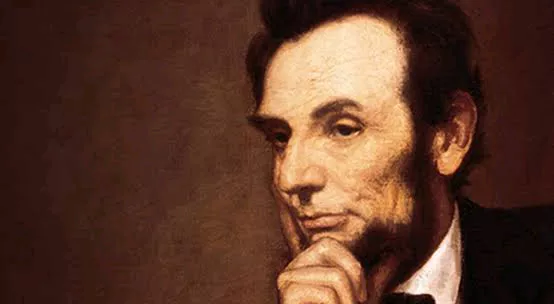Abraham Lincoln: A Leader With So Much Empathy
Abraham Lincoln is popularly known as the father of democracy and has a lot of things we can learn from as leaders and how he single-handedly influenced a great chunk of people to believe in his ideologies.
We will take a look at his discernment, disappointment, tragedy and triumph, will power and how he brought a transformational change to the nation of America.
According to Mark C. Crowley the author of Lead From The Heart: Transformational Leadership For The 21st Century, he has insightfully narrated the biography of Abraham Lincoln:
"Born in a log cabin in rural Kentucky, Lincoln grew up in abject poverty. His father never learned to read or write, working as a hired hand with little ambition. While his bright, caring mother taught him to read and spell, she contracted “milk sickness” and died when he was just nine. Routinely lent out to farmers needing workers, Lincoln had virtually no formal schooling. While still a boy, he witnessed the death of his infant younger brother and, later, his beloved older sister."
According to Kearns Goodwin, throughout his entire adult life, “Lincoln neither romanticized nor sentimentalized the difficult circumstances of his childhood.” Instead, his acutely painful experiences became the source of life-long compassion and concern for others.
Lincoln was an entirely self-taught man. Exercising incomparable drive and determination, he was a voracious reader who used literature to transcend his circumstances. Seen with a book under his arm at all times, Lincoln devoured Aesop’s Fables and the works of Shakespeare, reading them so many times he could recite entire passages from memory.
Prior to being elected a U.S. Congressman in his thirties, he learned the...
We will take a look at his discernment, disappointment, tragedy and triumph, will power and how he brought a transformational change to the nation of America.
According to Mark C. Crowley the author of Lead From The Heart: Transformational Leadership For The 21st Century, he has insightfully narrated the biography of Abraham Lincoln:
"Born in a log cabin in rural Kentucky, Lincoln grew up in abject poverty. His father never learned to read or write, working as a hired hand with little ambition. While his bright, caring mother taught him to read and spell, she contracted “milk sickness” and died when he was just nine. Routinely lent out to farmers needing workers, Lincoln had virtually no formal schooling. While still a boy, he witnessed the death of his infant younger brother and, later, his beloved older sister."
According to Kearns Goodwin, throughout his entire adult life, “Lincoln neither romanticized nor sentimentalized the difficult circumstances of his childhood.” Instead, his acutely painful experiences became the source of life-long compassion and concern for others.
Lincoln was an entirely self-taught man. Exercising incomparable drive and determination, he was a voracious reader who used literature to transcend his circumstances. Seen with a book under his arm at all times, Lincoln devoured Aesop’s Fables and the works of Shakespeare, reading them so many times he could recite entire passages from memory.
Prior to being elected a U.S. Congressman in his thirties, he learned the...



